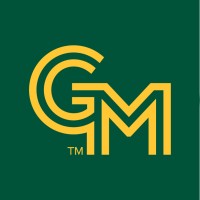Company Cyber Security Posture
NANA
NA Company Details
NA
NA
NA
NA
NA
NA
Scan still pending
NA
NA
Between 200 and 800
This score is AI-generated and less favored by cyber insurers, who prefer the TPRM score.
 NA Global Score
NA Global Score.png)

Company Scoring based on AI Models
| Model Name | Date | Description | Current Score Difference | Score |
|---|---|---|---|---|
| AVERAGE-Industry | 03-12-2025 | This score represents the average cybersecurity rating of companies already scanned within the same industry. It provides a benchmark to compare an individual company's security posture against its industry peers. | N/A | Between 200 and 800 |
Company Cyber Security News & History
| Entity | Type | Severity | Impact | Seen | Url ID | Details | View |
|---|
Company Subsidiaries

NA
Access Data Using Our API

Get company history
.png)
NA Cyber Security News
2023 award recipients celebrated
Chancellor Philip DiStefano celebrated the contributions of Ambassador David Bolen with a Chancellor's Impact Award at the 2023 commencement ...

NA Similar Companies

Babol Noshirvani University of Technology
Noshirvani Institute of Technology was founded in 1970 by a great benevolent & honorable man and one of the greatest philanthropists of Iran, Late Seyed Hossein Fallah Noshirvani. The college is situated in Babol a city in Mazandaran Province in the north of Iran, 20 km south of the Caspian Sea The

School of Visual Arts
School of Visual Arts has been a leader in the education of artists, designers and creative professionals for more than six decades. With a faculty of distinguished working professionals, dynamic curriculum and an emphasis on critical thinking, SVA is a catalyst for innovation and social responsibil

Washington University in St. Louis
Washington University in St. Louis, a medium-sized, independent university, is dedicated to challenging its faculty and students alike to seek new knowledge and greater understanding of an ever-changing, multicultural world. The university has played an integral role in the history and continuing gr

George Mason University
George Mason University is Virginia’s largest and most diverse public research university. Located near Washington, D.C., Mason enrolls more than 40,000 students from 130 countries and 50 states, and has a residential population of more than 6,000 students. Mason has grown rapidly over the past half

The California State University
The California State University is the largest system of four-year higher education in the country, with 23 campuses, 56,000 faculty and staff and more than 450,000 students. Created in 1960, the mission of the CSU is to provide high-quality, affordable education to meet the ever-changing needs of

UC San Diego
Recognized as one of the top 15 research universities worldwide, our culture of collaboration sparks discoveries that advance society and drive economic impact. Everything we do is dedicated to ensuring our students have the opportunity to become changemakers, equipped with the multidisciplinary too

Frequently Asked Questions
Explore insights on cybersecurity incidents, risk posture, and Rankiteo's assessments.
NA CyberSecurity History Information
How many cyber incidents has NA faced?
Total Incidents: According to Rankiteo, NA has faced 0 incidents in the past.
What types of cybersecurity incidents have occurred at NA?
Incident Types: The types of cybersecurity incidents that have occurred include .
Additional Questions
What Do We Measure?
















Every week, Rankiteo analyzes billions of signals to give organizations a sharper, faster view of emerging risks. With deeper, more actionable intelligence at their fingertips, security teams can outpace threat actors, respond instantly to Zero-Day attacks, and dramatically shrink their risk exposure window.
These are some of the factors we use to calculate the overall score:
Identify exposed access points, detect misconfigured SSL certificates, and uncover vulnerabilities across the network infrastructure.
Gain visibility into the software components used within an organization to detect vulnerabilities, manage risk, and ensure supply chain security.
Monitor and manage all IT assets and their configurations to ensure accurate, real-time visibility across the company's technology environment.
Leverage real-time insights on active threats, malware campaigns, and emerging vulnerabilities to proactively defend against evolving cyberattacks.




